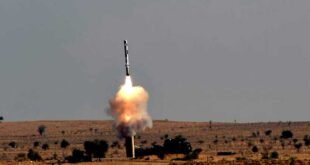Eugene Delacroix’s infamous painting “la liberté Guidant le Peuple” reminds the whole world of the July Revolution of 1830 that toppled King Charles X of France. The lady in the centre of the painting with the French tricolour still symbolizes the concept of liberty and reminds the whole world of revolutions and sacrifices made for freedom. France indeed has a long journey from revolting against “if they have no bread, let them eat cake” in 1789 to establishing a modern democratic society with the principles of “liberty, equality and fraternity”.
France and the United States are rightly considered the birthplace of modern democracy. The French revolution taught the whole world lessons about revolution, freedom modern nationalism, liberalism and sovereignty. In 2022, France celebrates the 233rd year of Bastille Day which led to a new dawn in the French political system. From establishing 1ere Republique (1st Republic) in 1792, France has evolved and is currently under the 5eme Republique (5th Republic) under the constitution crafted by Charles de Gaulle in 1958.
Today, France is holding its presidential elections. As the French believe, ‘You first vote with your heart, then your head’, the first round of voting was concluded on Sunday 10thApril and the Presidential debate on 20th April 2022. While the whole world waits for the 24th of April’s second round of elections and their results, this article attempts to understand the French electoral system and analyze Why French Presidential elections are important for Europe?
French electoral system
France is a semi-presidential democracy; the president is at the centre of power and Prime Minister heads the government. The president of the French republic is elected by direct universal suffrage where all French citizens aged 18 and above can vote, whether residing in France or not. In France, there is a two-round system in which voters vote twice on two Sundays, two weeks apart. This two-round system is widely practised in central and eastern Europe as well as Central Asia, South America and Africa.
In order to apply, a candidate needs 500 signatures of elected officials and they should be at least from 30 government departments. A candidate can be an independent or he or she can represent a political party. There is no limit to how many candidates can run for presidential elections. For instance, in 2002 there were 16 candidates, in 2017- 11 and in 2022 there are 12. While all the candidates have the right to equal media presence, the amount of spending on campaigns is also monitored; for the 1st round, the spending must not exceed 16.9 million euros and for the second round, it has been limited to 22.5 million euros.
This year, the 1st round of voting was concluded on 10th April while the second one is scheduled to be held on 24th April 2022. In the first round, all 12 candidates were eligible but for the second round, only two candidates who got the maximum votes are qualified for the second round.
A brief overview of French presidential candidates
Emmanuel Macron, five years ago at the age of 39, became the youngest French president of the French republic. In 2017, he broke the dominance of the two major French parties- Republicans and Socialists- by running a campaign “neither left nor right”. During the tenure of Emmanuel Macron, a hardcore centrist, France has witnessed a 7% GDP growth, unemployment dropped by 7.2% and the crime rate has fallen to 27%.
A far-rightist, Marine Le Pen is the other presidential candidate who succeeded her father, Jean-Marie Le Pen, as leader of the National Front (later National Rally) party in 2011. She was also contesting against Emmanuel Macron during the 2017 elections and before that in 2012, against Nicolas Sarkozy and Francois Hollande. While she embraced the party’s anti-immigration stance, she rebranded the party’s Euroskepticism as French nationalism.
This year, in the April 2022 elections, the current President of France, Emanuel Macron and far-right leader, Marine Le Pen are the two candidates with Macron running ahead with a lead of 4.7 per cent votes (Emmanuel Macron-27.8% & Marine Le Pen- 23.1%).
Why French Presidential elections are important for Europe?
While European defence is primarily assured by the US-led NATO military alliance, of which most EU states are members, French president Macron said, “Europe needs to finally build its own collective security framework on our continent…”, advocating for a ‘European Security’ framework amid tensions with Russia over Ukraine.
On the other hand, Le Pen’s party has been looked upon suspiciously that it might have received financing from a Russian bank connected to the Russian President Putin. In an interview with French public radion, Le pen said, “It will be necessary diplomatically, when the war [in Ukraine] is over, when a peace treaty has been signed, to try to avoid this tie-up which risks being the largest danger of the 21st century for us,” she even further added, “Imagine … if we let the first producer of raw materials in the world — which is Russia — [create an alliance] with the first factory of the world — which is China — to let them perhaps constitute the first military power of the world. I believe that it’s a potentially great danger.” These statements only further reinforce the claims that Le Pen is more pro-Russia.
While Macron is anti-Brexit, Le Pen, on the other hand, has been known for her ‘Frexit’ plan, meaning, that she wanted France to leave the EU and abandon the euro. However, during the 2022 elections, it appears that Le Pen has softened her stance on Frexit. Another important issue pertaining to immigration has been significant not only for France but the whole of Europe. This issue of immigration is directly linked with the “economic and cultural concerns” which raises an important worry about immigrants’ socio-political and economic integration into the French society and abiding by the principle of laïcité (secularism with French characters).
As for Macron, he wants to create a “rapid reaction force” to help protect EU states’ borders in case of a migrant surge and is also pushing for a rethink of the bloc’s asylum application process. Macron also said that he urges the EU to be more efficient in deporting those refused entries. On the other hand, Marine Le Pen during her campaign stated, “I will control immigration and establish security for all.” It is pertinent to note that Macron has introduced strict laws pertaining to immigration and controlling Islamic radicalization. For instance, he introduced the bill to ban foreign funding to mosques.
What is more interesting to mention is the concerns about ‘energy’ in the presidential election. Evidently, the ongoing conflict in Ukraine has gained more attention on the economic and geopolitical consequences of existing national and European energy supply chain choices. In France especially, there is a major rift between the pro and anti-nuclear power fractions. Interestingly, France has the second most nuclear power stations in the world after the United States. Besides, in the last week of the elections, Macron has been attempting to win the hearts of the French voters with his proposal for a “complete renewal” of his climate policy. He has also promised to build up to 14 nuclear reactors by 2050 and regenerate existing plants. Meanwhile, Le Pen has promised to build 20 nuclear plants and aim to have nuclear power provide 81 per cent of France’s energy by 2050. While the current president Macron and far-right candidate Le Pen have both committed to the 2015 Paris Agreement to limit global warming, it is evident that their approaches differ particularly on energy. Since France is Europe’s second-biggest economy, France’s climate policy could echo right across the EU.
Besides, in light of the ongoing Russia-Ukraine crisis, Macron has played a significant role as he is the bridgehead for Russia and the US. He has also negotiated talks between Washington DC and Moscow and has also condemned the crisis by making the statement, “Russia is not under attack, it is the aggressor. As some unsustainable propaganda would have us believe, this war is not as big as the battle against, that is a lie.” Indeed, he has played the role of Europe’s de-facto leader vis-à-vis the Ukraine crisis. Nonetheless, with a marginal win in the first round against Marine Le Pen, winning the 2nd term is not as easy as it was five years ago.
More importantly, it is pertinent to note that France has the 2nd strongest military and 2nd biggest economy in Europe, further the 5th biggest economy in the world. France is not only the most visited country in the world but also ranks 1st in the global soft power index. It is also the founding member of the United Nations Security Council, North Atlantic Treaty Organization and the European Union which makes it an important player in European politics. Consequently, the policies of the French leadership not only direct the political, social and economic lives of the French but also reverberate in Europe.
 Geostrategic Media Political Commentary, Analysis, Security, Defense
Geostrategic Media Political Commentary, Analysis, Security, Defense





